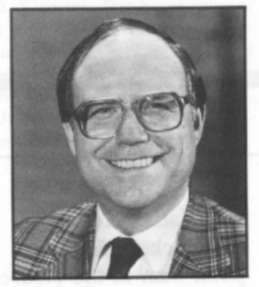 |
Home | Search | Browse | About IPO | Staff | Links |
 |
Home | Search | Browse | About IPO | Staff | Links |
|
Politics Market research, job retraining: State puts horse before cart 
By CHARLES N. WHEELER III Whether you're talking soapflakes or soap operas, market research is a key component in the development of new products. The captains of industry would no more think of mass producing an untested breakfast cereal than they would of offering Ralph Nader the presidency of the U.S. Chamber of Commerce. But when a government entity asks potential users how to shape an embryonic program, it's a departure worth noting from the usual bureaucratic modus operandi. Meet the Prairie State 2000 Authority, a youthful state agency with the intriguing idea of checking to see whether there's a market for its product before charging ahead with an innovative approach to retraining workers for tomorrow's jobs. The need seems obvious as the Illinois economy is reshaped by technological change and global competition. Most young people entering the workforce today — and even many current jobholders — can expect multiple careers before retirement, each requiring upgraded skills. Indeed, the initial charge given the Prairie State 2000 Authority in the 1983 legislation creating it was to develop a job retraining fund for experienced workers financed by voluntary contributions and operated like an insurance policy. That approach proved unworkable, so the legislature two years ago switched to a publicly funded retraining effort under which Prairie State 2000 provided $2.5 million in the fiscal year just ended to help upgrade the skills of some 10,000 workers, 80 percent of them employed and coping with new technology. Lawmakers also directed the authority to explore the possibility of a privately financed job transition fund. Enter market research. "The board of directors had the good sense to take a pure market approach and study whether there was a need for the program," explained Kristine Coryell, the authority's chief operating officer. Northern Illinois University's Center for Government Studies was enlisted to survey 1,555 workers and 636 businesses in Illinois to determine the need for a retraining and job search assistance program, how one should be set up, and who should pay for it. The results were encouraging. Almost two-thirds of the businesses and 85 percent of the workers surveyed believed there was a need to spend more on job search and retraining efforts; more than two-thirds of the workers said they expected they'd have to develop new skills to keep their jobs. The financing plan most favorably received was a joint savings approach, under which employers and workers would receive state tax incentives for contributions to an employee's individual retraining account, to be used when the worker was laid off. Now, more market studies are underway to determine how to fashion a voluntary, privately financed job transition program to attract maximum participation. And the authority is seeking a $594,000 federal grant to initiate a multiyear demonstration project involving four market sites, probably downstate cities of comparable size and demographics. Plans call for assessing each area's unemployment history and determining what retraining and job search assistance is now offered by local employers. Then, a marketing plan including in-plant advertising and a media blitz will be developed to "sell" the private fund concept to employers and workers in two cities. The other two, meanwhile, will serve as yardsticks against which to measure the new program. Evaluators will be looking not just at participation, but also at whether the presence of the new program encourage business to do more on its own and whether an individual's time on unemployment actually is reduced by job retraining and job search assistance. 4/July 1987/Illinois Issues "I frankly don't know whether it will work or not,'' says Coryell, who has a doctorate in psychology from the University of Illinois. "That's the exciting part. No one knows if it will. But there's an indication that there's a willingness to try it." And should the effort bomb? "Each year, the decisions will be based on that year's experiences," she responds. "If we find out that it makes no sense, we'll stop." That's a refreshing attitude in an era when government programs often take on a life of their own, whatever the level of interest shown by their intended beneficiaries. "It's an interesting way to shape public policy,"' Coryell acknowledges. "But it's an honest way and it enables us to have disparate groups like the State Chamber of Commerce and the AFL-CIO work with us.... The key is being honest about not knowing if it'll work. No one comes in with any preconceived notions." While the marketing approach is worth emulating for other proposed government initiatives, the federal government's interest in the authority's effort underscores another notable feature: So far, no privately financed job transition fund exists anywhere in the country, and Illinois could become the national model. Of course, privatization of job training is no panacea, Coryell notes; government always will have a role in helping workers without resources of their own to prepare for emerging jobs. But a privately financed system operating outside the political arena, where today's popular cause may become tomorrow's forgotten program, would assure that retraining help will be available when needed. And asking workers to join employers in underwriting the plan gives them a stake in the program's success and emphasizes that the individual, too, has some responsibility for upgrading personal skills to meet new challenges. So if the Prairie State 2000 Authority succeeds in developing a privately financed job transition fund that it can market successfully, everyone will win. If we can reduce someone's time out of work by a week, that's good for the person and the community, and it's a savings to the government," says Coryell. "It's a terrific opportunity for us." 5/July 1987/Illinois Issues |
|
|